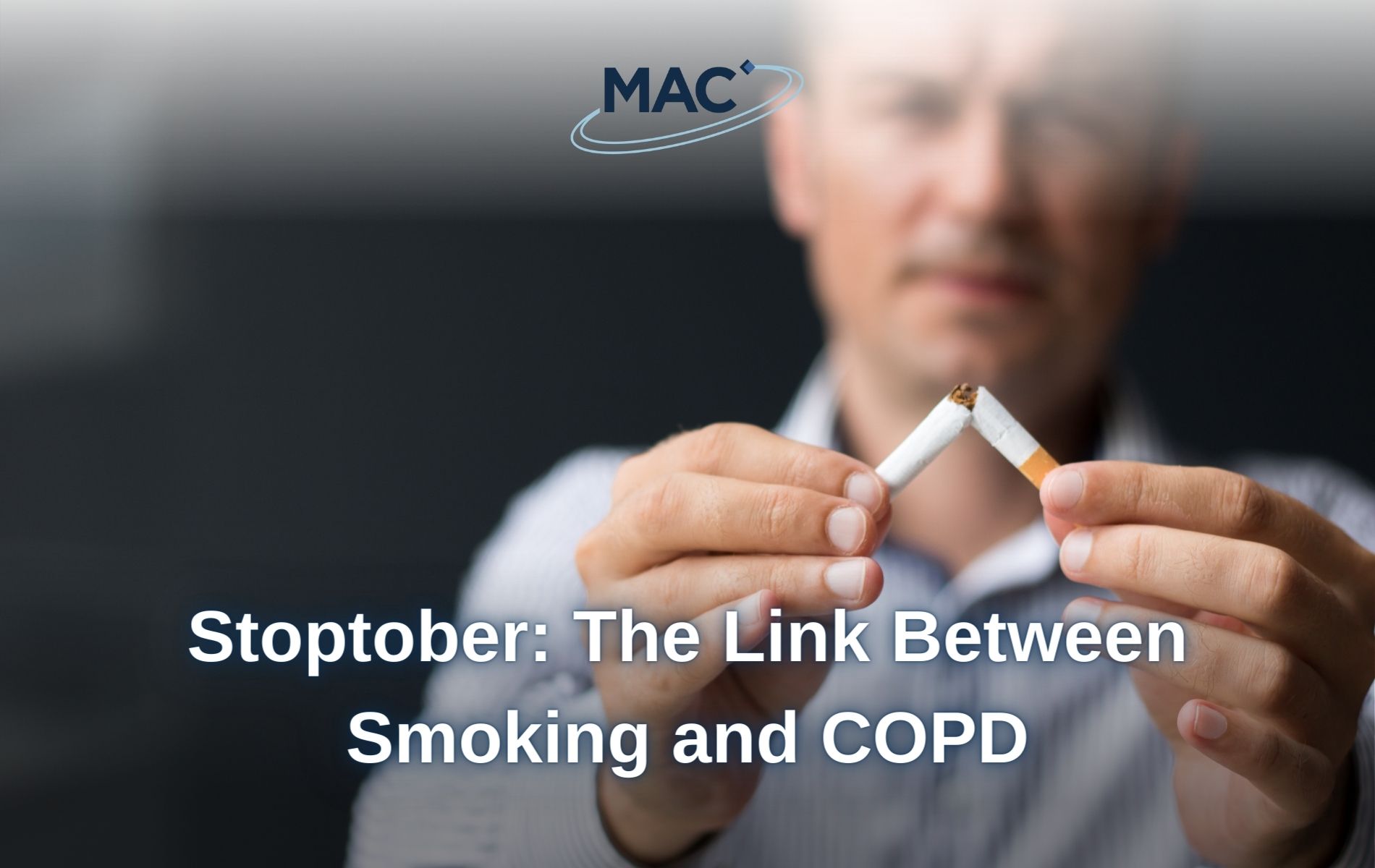Stoptober is upon us once again, urging smokers to take a step towards a healthier life by quitting smoking for the month of October (and beyond). It’s a campaign that’s not just about counting the days without a cigarette but also about raising awareness of the critical health issues associated with smoking.
One of many severe consequences of smoking is Chronic Obstructive Pulmonary Disease (COPD). COPD is a progressive lung disease that encompasses chronic bronchitis and emphysema, two conditions often caused or exacerbated by smoking.
There are an estimated 1.2 million people in the UK living with COPD, and exacerbations caused by this condition are the second most common cause of emergency hospital admissions, accounting for 1 in 8 UK hospital admissions1.
When people smoke, harmful, toxic chemicals are released into the lungs, which over time lead to inflammation and damage to the airways and air sacs. As these critical lung structures become impaired, breathing becomes increasingly difficult, and symptoms of COPD can begin to manifest.
COPD is a debilitating disease that dramatically affects quality of life. It brings symptoms such as persistent cough, excessive mucus production, shortness of breath, and chest tightness. These symptoms can progress to the point where simple tasks like walking or climbing stairs become monumental challenges that affect daily life.
As COPD advances, it can lead to frequent hospitalizations and even death. Research in Europe found that the UK ranks third in the continent for COPD mortality rates. Around 30,000 people die each year from COPD in the UK, making it the second biggest cause of death from lung disease2.
The connection between COPD and smoking is indisputable; around 20% of smokers will develop COPD3. One of the best ways to reduce the risk of developing COPD, as well as reducing the risk of COPD flare-ups for those already living with the condition, is to quit smoking. It’s estimated that after nine months of quitting smoking, people living with COPD will notice that their cough, sinus congestion, fatigue and shortness of breath have decreased4.
Despite this, many who live with COPD will continue to smoke. In research conducted by The European Respiratory Journal, over 1/3 of people living with COPD in their research cohort continued to smoke5.
Many of those who have quit smoking turn to vaping as it is perceived as a less harmful alternative to tobacco. While it’s true that e-cigarettes don’t produce the same harmful tar and combustion byproducts as traditional cigarettes, their long-term safety is still a matter of concern. Some research into COPD and vaping has suggested that those living with the condition should (where possible) avoid e-cigarettes as a method for helping them to stop smoking, as they have a similar ability to stimulate inflammation and lung damage as cigarette smoke, and thus potentially accelerate their disease progression6.
As Stoptober encourages smokers to embark on their journey towards quitting, it’s crucial to recognise the direct link between smoking and COPD. Smoking cessation is the single most effective way to reduce the risk of COPD and improve overall lung health. It’s a decision that can significantly enhance the quality and duration of one’s life.
MAC Clinical Research is committed to improving the quality of life for those living with COPD through clinical trials. If you are aged 40-85 and you are an ex or current smoker living with COPD and a history of frequent exacerbations, you could be eligible to take part in MAC’s clinical trial, investigating potential new treatment options for this debilitating condition.
The trial is running at MAC’s clinics in Greater Manchester, Lancashire, South Yorkshire, and Teesside.
Eligible participants for the trials will receive reimbursement for their time and commitment to the trial, plus reasonable travel expenses will be paid, or transport provided, as well as a full medical check-up.
To find out more about MAC’s clinical trial and register your interest to take part, visit MAC’s COPD research webpage today.
1 NHS – Digital service to manage high-risk chronic obstructive pulmonary disease (COPD) patients
3 Ash Scotland – Smoking and Chronic Obstructive Pulmonary Disease (COPD)
4 National Emphysema Foundation – The Benefits of Quitting Smoking
5 European Respiratory Journal – Improved outcomes in ex-smokers with COPD: a UK primary care observational cohort study
6 European Respiratory Journal – Heightened response to e-cigarettes in COPD






